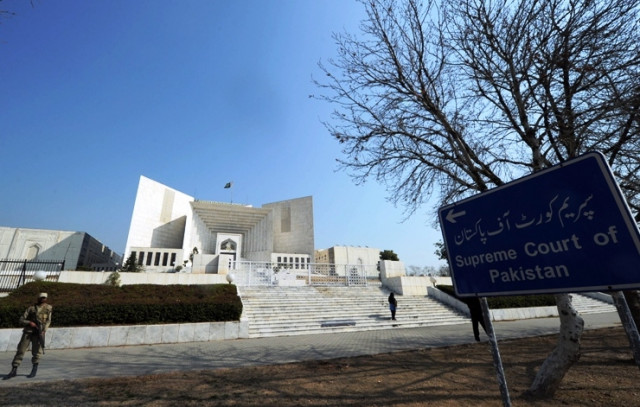The withering away of the Asghar Khan case
It is going to be tough to get to the end of this trial due to the highly politicised judicial process in the country.

The petition filed by Air Marshal (retd) Asghar Khan sought investigation into the distribution of millions of rupees of public money by the ISI among the anti-PPP politicians to manipulate the 1990 elections against the PPP. Successive apex courts have ducked the question asked in the petition because, simply put, the ISI was too powerful, manned by military personnel reporting to the army chief, although legally answerable to the elected prime minister. The present Supreme Court has accepted the challenge of going into an embarrassing case that has withered on the bough of Pakistan’s legal system because of the dominance of Pakistan’s ‘informal’ centres of power that scuttle the Constitution in a polarised political environment. The earlier courts had put the case on the back-burner. A predecessor of the current chief justice, Justice Syed Sajjad Ali Shah was hearing the case in 1997 when he was shown the door by his fellow judges after a ‘judicial’ mutiny, allegedly manoeuvred by the Nawaz Sharif government.
The embarrassing aspect of the case persists even today because the people who allegedly received the bribes are in denial and they are all people the Court would prefer not to cause discomfiture to. The ISI chief involved, Asad Durrani, has made a clean breast of it once again, putting the bite on an ex-army chief, Aslam Beg, who says he knows nothing about the scam.
Durrani’s list of ‘beneficiaries’ is as follows: Nawaz Sharif (in rupees) 3.5 million, Lt General Rafaqat 5.6 million, Mir Afzal Khan 10 million, Ghulam Mustafa Jatoi 5 million, Jam Sadiq Ali 5 million, Mohammed Khan Junejo 2.5 million, Pir Pagaro 2 million, Abdul Hafeez Pirzada 3 million, Yusuf Haroon 5 million (he confirmed receiving this for Altaf Hussain of the MQM), Muzaffar Hussain Shah 0.3 million, Abida Hussain 1 million, Humayun Marri 5.4 million, Jamaat-e-Islami Rs5 million; Altaf Hussain Qureshi and Mustafa Sadiq Rs0.5 million; Arbab Ghulam Aftab Rs0.3 million; Pir Noor Mohammad Shah Rs0.3 million; Arbab Faiz Mohammad Rs0.3 million; Arbab Ghulam Habib Rs0.2 million; Ismail Rahu Rs0.2 million; Liaquat Baloch Rs1.5 million; Jam Yusuf Rs0.75 million; Nadir Magsi 1 million, etc.
Banker Yunus Habib, who allegedly created the slush fund for Aslam Beg and the late president Ghulam Ishaq Khan has submitted his own list: Aslam Beg Rs140 million; Jam Sadiq Ali (the then-chief minister of Sindh) Rs70 million; Altaf Hussain (MQM) Rs20 million, Advocate Yousaf Memon (for disbursement to MNA Javed Hashmi and others) Rs50 million; 1992 — Jam Sadiq Ali Rs150 million; 1993 — Liaquat Jatoi Rs1 million; 1993 — chief minister of Sindh, through Imtiaz Sheikh Rs12 million; Afaq Ahmed of the MQM Rs0.5 million; chief minister of Sindh, through Imtiaz Sheikh Rs01 million; Ajmal Khan, a former federal minister Rs1.4 million; Nawaz Sharif, Rs3.5 million; 27/9/93 Nawaz Sharif, former prime minister; Nawaz Sharif and Ittefaq Group of Companies Rs200 million (photocopies of cheques and deposit slips attached); Sardar Farooq Leghari 12/12/93 Rs30 million, 6/1/94 Rs2.0856 million, 19/3/94 Rs1.92 million, etc.
Former ISI chief Hamid Gul has admitted on television that the establishment had always been wary of the PPP coming to power and, therefore, manoeuvred the system to circumvent it. Today, the same sort of scenario is in place. It is going to be tough to get to the end of this trial due to the highly politicised judicial process in the country because of the way political rivals are exploiting the bold impartiality of the Court to settle their scores.
Published in The Express Tribune, September 15th, 2012.















COMMENTS
Comments are moderated and generally will be posted if they are on-topic and not abusive.
For more information, please see our Comments FAQ